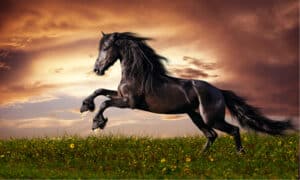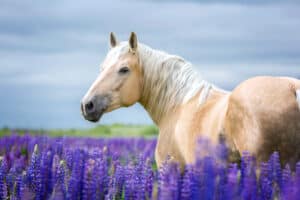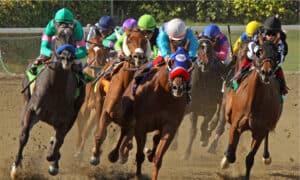Colic is the most common cause of natural death in horses, so it’s worth exploring why it happens and how to prevent it. But to answer why horses colic, we need to understand more about the animal’s anatomy. Horses have a 70-foot-long small intestine that makes up 30% of its digestive system. It’s very long and winding! This poses a problem when it comes to seamlessly passing food through it.
Let’s discover exactly what colic in horses is and the common causes of this serious, yet unpredictable equine emergency.
What Is Colic in Horses
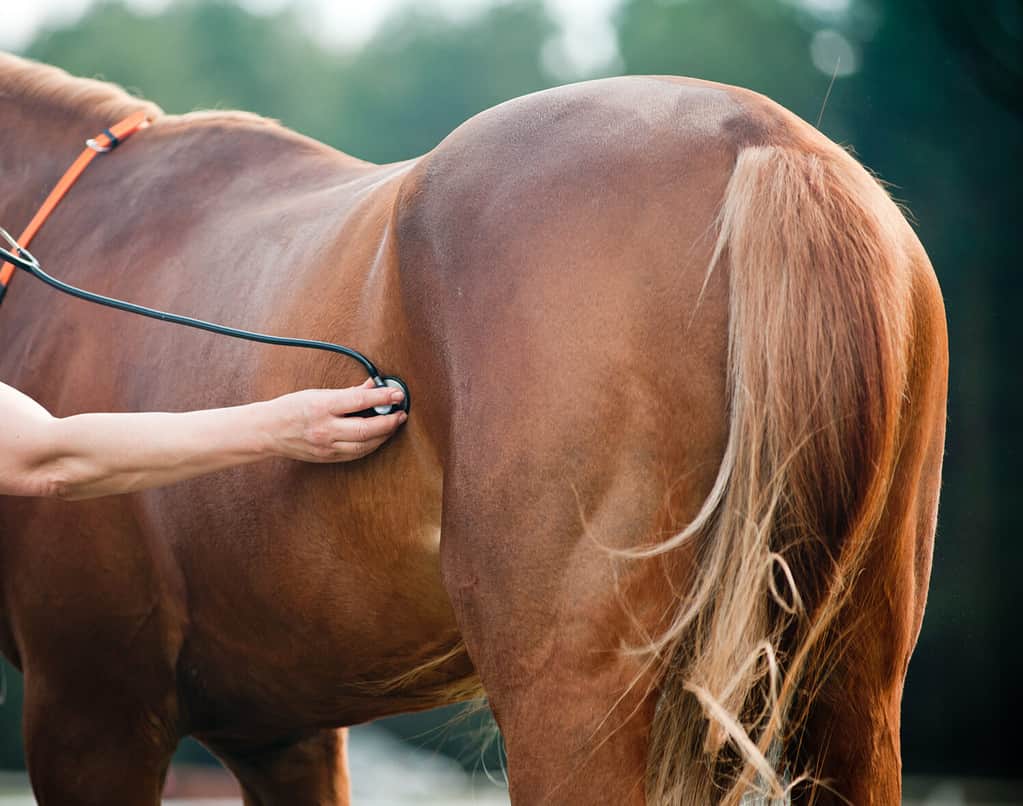
There are 3 types of colic in horses, ranging from mild to life-threatening.
©mariait/Shutterstock.com
Horses colic when they have and show signs of abdominal pain. There are 3 types of colic: gas colic, obstructive lesions, and functional obstructions.
The most common type is gas colic, which causes mild discomfort due to excess gas production. This is easily alleviated with minor medical intervention.
Obstruction lesions occur when a horse’s digestive tract is impacted, making them constipated. An impaction can happen due to a horse’s natural anatomy — 70 feet of small intestines has to fit somewhere — and a lack of fiber or water to move forage through their system. Medical intervention is necessary, but treatment is typically successful.
However, strangulating obstructive lesions is serious, life-threatening pain and pressure in a horse’s abdomen. Their intestines twist, which blocks digestion completely and requires immediate surgery. A horse’s intestine is normally pink, but if there’s an impaction then that part turns purple. If whatever is blocked doesn’t pass through quickly, the large intestine can slip into the smaller one and rupture, leading to the horse’s death.
The final type of colic is due to functional obstructions or inflammation in the horses’ digestive system that leads to a blockage. This is extremely painful and may require medical intervention like surgery.
However, don’t fear! 80% of colic situations respond well to treatment if you take immediate action. While it’s a fairly common and very serious event for horse owners to experience, it’s not always fatal.
Causes of Colic in Horses
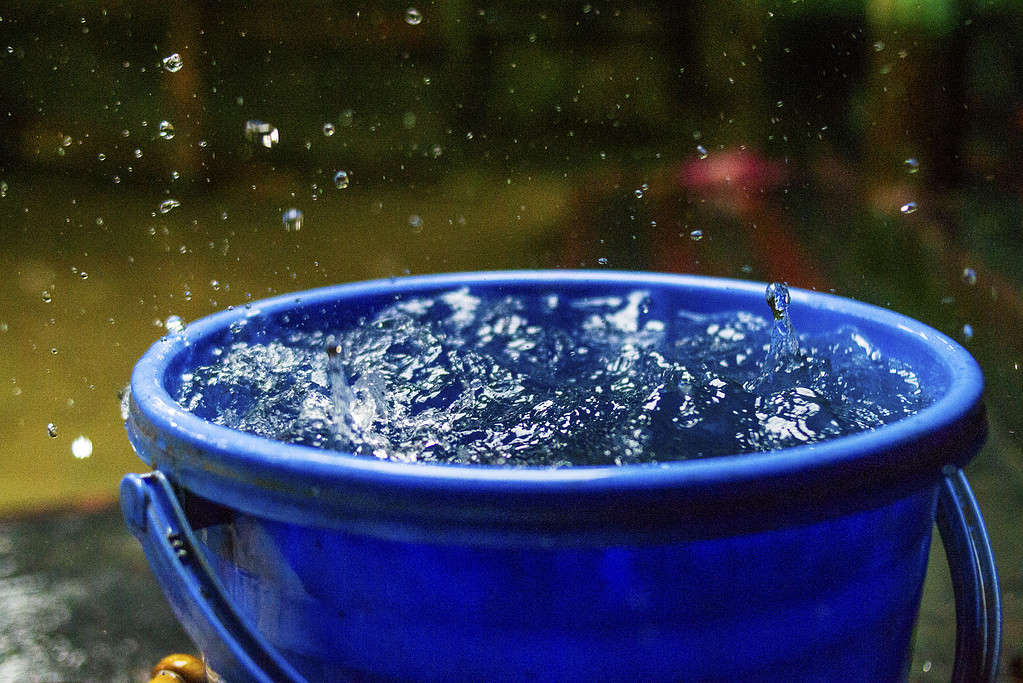
Dehydration is a common contributor to colic in horses.
©MD Sirazul Islam/iStock via Getty Images
Unfortunately, veterinarians can’t pinpoint the exact cause of colic in horses. However, there are risk factors that contribute to it such as:
- Dehydration (whether it’s because the water is dirty, full of ice, they just don’t want to drink it, or they don’t have access to it)
- Dental issues that lead to them not properly chewing their food
- Stress due to traveling or showing
- Changes in their daily routine
- Not having more access to forage in the winter
- Adjustments to their grain
- Eating too much grass or having access to freshly mowed grass (grass under 6 inches tall produces excess sugars that lead to colic in horses)
- Ingesting sand or bluestone if they eat hay off the ground
Now that you know some of the main causes of colic in horses, let’s discover the common symptoms to watch out for that tell you it’s time to call the vet out pronto.
Signs and Symptoms of Colic
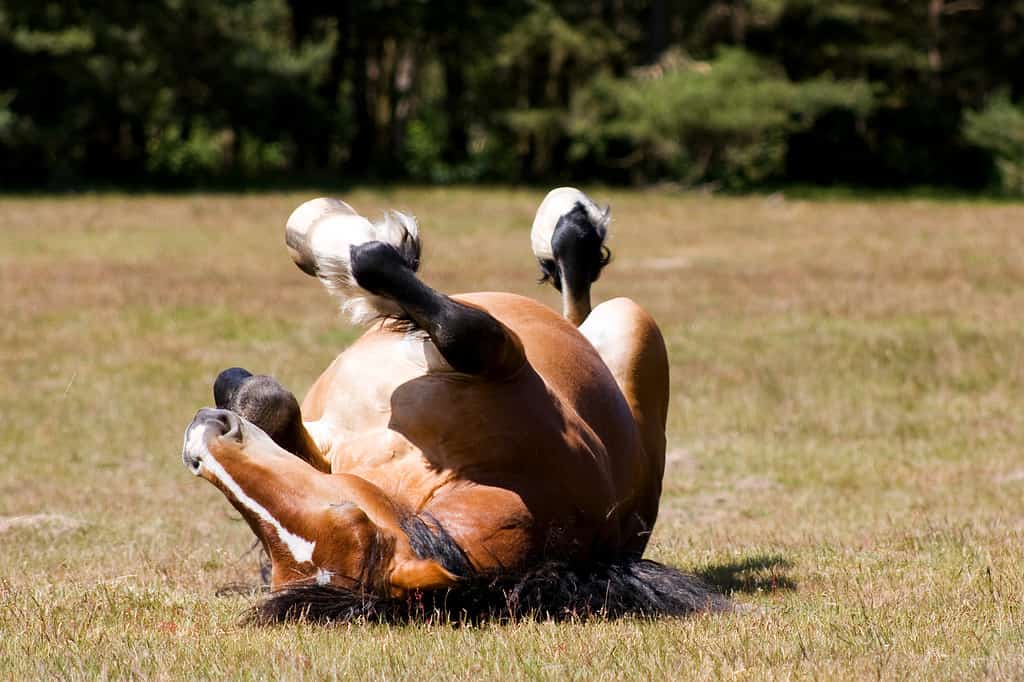
A horse who is rolling excessively may be showing signs of colic.
©SecondShot/iStock via Getty Images
Every horse deals with pain differently, just like humans. However, there are a few common symptoms to watch out for that can indicate a colic episode is coming on such as:
- Not pooping
- A lack of interest in eating
- Rolling more than usual (usually in an attempt to ease their discomfort)
- Standing with their legs stretched out in front and behind them
- Looking at their stomachs constantly
- Touching or biting at their belly
- Excessive sweating
- A heart rate over 45-50 bpm
- General restlessness
If your horse shows any of these signs, it’s time to call the vet. But while you wait for them to get to you, there are actions you can take to help ease your horse’s pain and prevent further problems.
Treatment of Colic in Horses
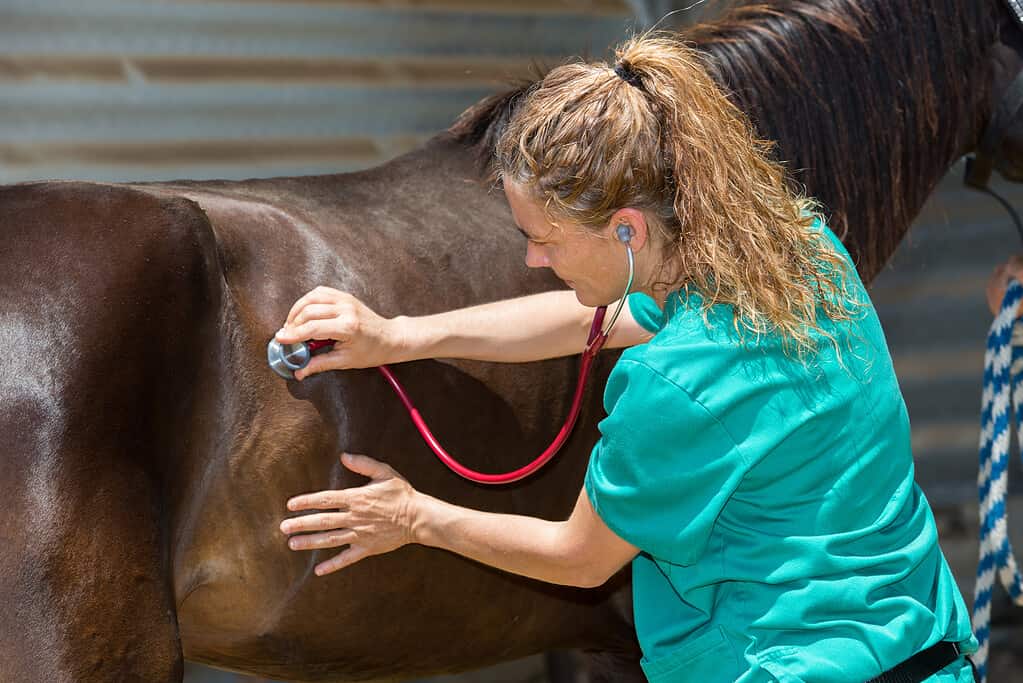
Call your vet immediately if your horse shows signs of colic. Even for mild cases, vets can prescribe pain medicine to help them feel better.
©iStock.com/fotoedu
If your horse’s symptoms line up, call the vet out immediately. They might ask you questions about the state of your horse, so be armed with information about their:
- Symptoms
- Heart rate
- Respiratory rate
- Temperature
- Gums (the color and moistness)
- Digestive sounds
- Last bowel movement
- Daily routine, including any recent changes to it
Once you hang up with the vet, halter your horse and walk them around. This helps relieve pain and prevents them from rolling, which can make the colic episode worse. If it’s a build-up of excess gas causing the colic, walking can help expel it.
Additionally, take away their food to prevent further obstructions and encourage them to drink water. If you have Banamine on hand, you can use that as a pain reliever until the vet arrives. Your goal? Get them to fart or safely pass whatever was blocking their digestive system. If this doesn’t happen within 30 minutes of intervention, vet assistance is required.
Once the vet arrives, they will do a physical examination to determine what type of colic your horse has. If it’s a mild case, pain relievers or IV fluids are dosed. If it’s a serious case where the intestines are twisted or inflammation is preventing anything from passing through, surgery is required. Surgery is a last resort and only a small percentage of horses who colic need it.
Now that you know why horses colic and how painful it can be for them, you’re probably ready to discover how to prevent it from happening!
Horse Colic Prevention
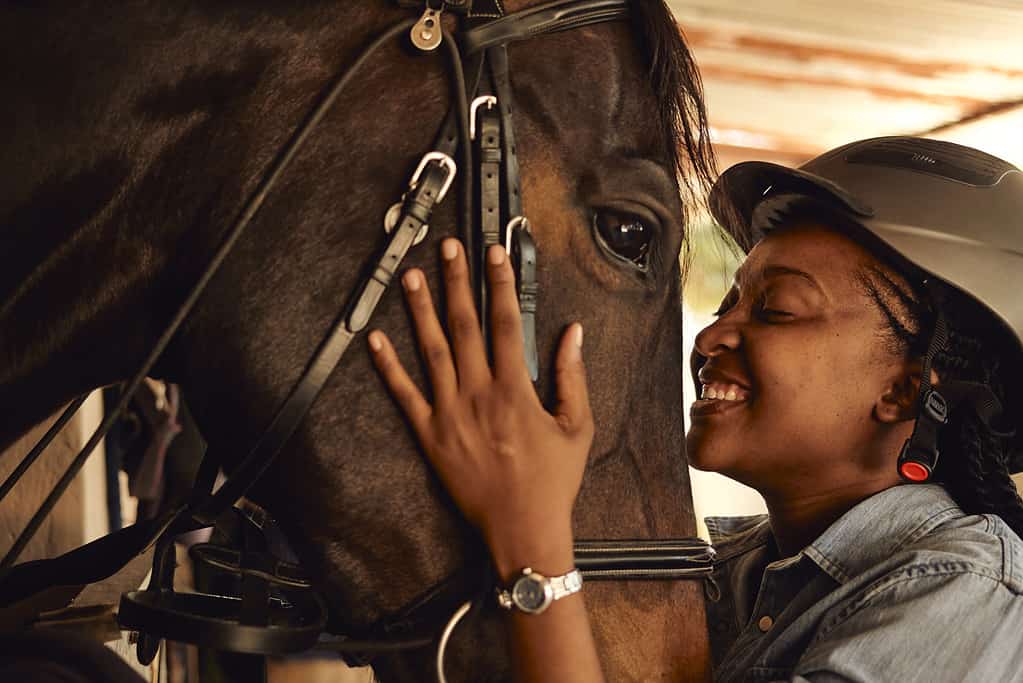
Horse colic can be a life-threatening emergency, so prevention is key!
©Magnifical Productions/iStock via Getty Images
Since colic in horses is quite unpredictable, you can feel powerless trying to prevent it. However, there are plenty of ways you can limit the likelihood of an episode like:
- Keeping to a routine
- Limiting their access to lush grass
- Reducing their stress levels
- Feeding your horses forage in a hay net or hay rack off the ground
- Giving your horse 24/7 access to clean, temperature-appropriate water
- Using heated water buckets in the winter to prevent dehydration
- Adding electrolytes to their water during the colder months
- Feeding grain as a supplement rather than a main part of their diet
- Proper dental and vet care
- Knowing the symptoms to look out for
As prey animals, a horse’s nervous system kicks into “fight or flight” mode easily. This is great when they live in the wild. But, in captivity, the excess cortisol can lead to a plethora of problems. That’s why it’s up to you as their owner to keep to a routine and take extra care to prevent this kind of medical emergency.
However, horses colic commonly. It’s not an indication of lack of care. They have an unfortunate digestive anatomy that makes it hard to keep them in good health, even with a consistent routine and the proper diet.
Plus, their needs change with the seasons! For instance, as we approach the cold weather months, now’s the time to pay extra attention to your horses to prevent them from colicing.
Watch Out For Cold Weather Colic
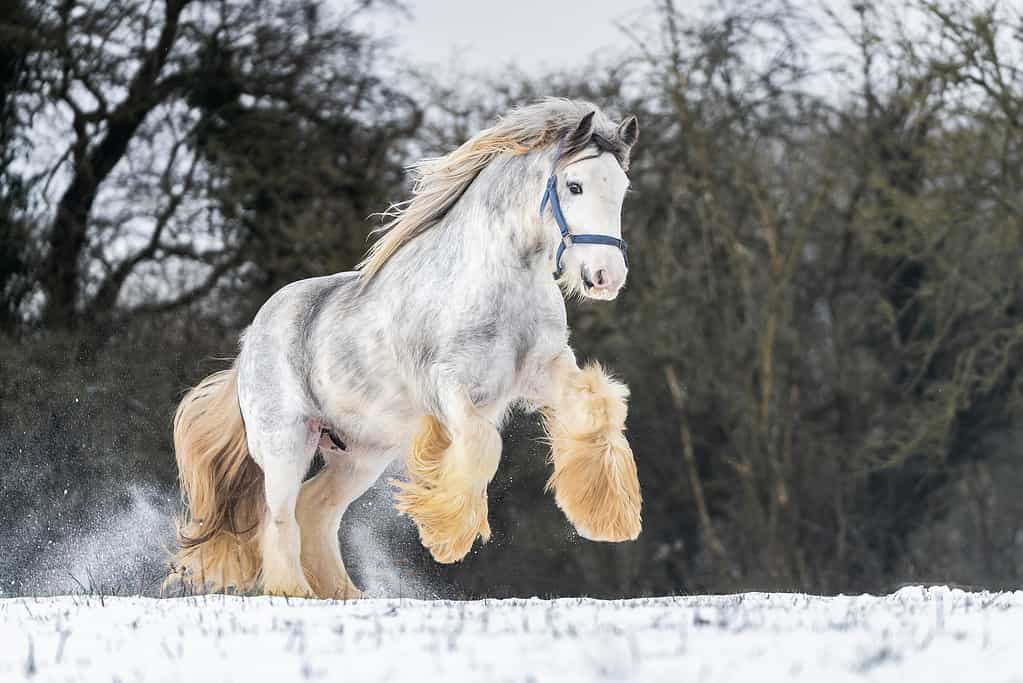
Horses have a higher chance of colicing in the winter due to changes in their routine that can lead to digestive blockages.
©Matthew Troke/iStock via Getty Images
As you already know, dehydration is a major cause of colic. Dehydration is especially common for horses when cold weather hits.
Alisha Jackson, owner and barn manager of Blue Mountain Pet Care in Virginia says that the main reason horses colic in the winter is because “Colder weather prompts changes in horses’ routines. This can include reduced turnout, a change in eating patterns, and dehydration. Horses colic easier if they aren’t drinking enough, so it’s important to keep heated buckets and clean water available at all times to promote drinking.”
To keep colic at bay during the winter, there are a few things you can do. Be sure to install heated water buckets when the temperature drops, consider adding electrolytes to your horse’s water to keep them hydrated and make extra forage available if they’re turned out. If they are in a stall more regularly, try adding a hanging salt lick for them as opposed to a salt block. Horses will play, lick, and chew on it, which reduces stress. Ingesting salt also encourages horses to drink more water while providing them with all of the minerals they need.
The biggest thing to remember is the importance of continuing your horse’s normal routine. If you can do that, you significantly reduce the risk of colic.
The photo featured at the top of this post is © Liudmila Chernetska/iStock via Getty Images
Thank you for reading! Have some feedback for us? Contact the AZ Animals editorial team.




